May 14, 2025 | 19:29 GMT +7
May 14, 2025 | 19:29 GMT +7
Hotline: 0913.378.918
May 14, 2025 | 19:29 GMT +7
Hotline: 0913.378.918
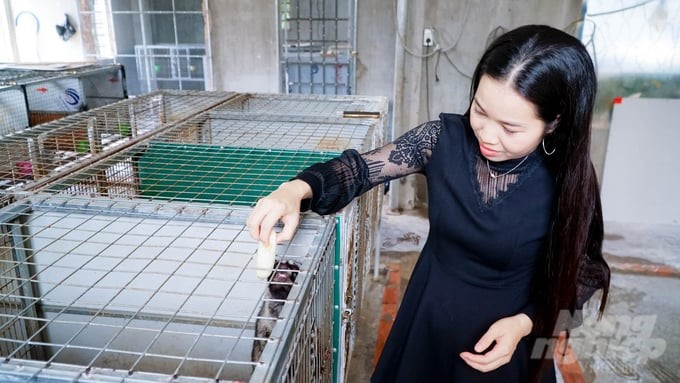
After nearly two years of raising civet, Ms. Nhung's farm is now profitable by selling breeds and civet for meat. Photo: Le Binh.
The civet farm of Ms. Nhung and Mr. Quy (Phu Dung hamlet, Phu Binh commune, Tan Phu district) showed surprising effectiveness. With 40 parent civets, Ms. Nhung and her husband currently have a stable income. Ms. Nhung’s model is one of the most effective wildlife raising models in Tan Phu district and is being introduced and replicated by the District Animal Husbandry and Veterinary Station.
Mr. Nguyen Phuoc Quy shared that after the COVID-19 pandemic, he and his wife stopped doing business and learned about raising civet at home. After learning from many different sources, the couple decided to buy 10 pairs of parents to try raising.
After nearly two years, Mr. Quy and his wife's total civet herd has now reached 40 heads. In the first year of raising civet, Mr. Quy recovered his capital and is earning a profit of about VND 300–400 million each subsequent year.
Currently, civets are sold to the market by Mr. Quy and Ms. Nhung in two different forms and prices. Baby civet breeds of about 2.5 months old cost VND 8 million/pair, while civets for meat are sold for VND 1.5–1.7 million/kg, depending on the time.
“A baby civet from birth to maturity and reproduction is 10–12 months old. Each year, civet will lay 2 litters, with about 4–12 babies. Civet is pregnant for about 60 days before giving birth. Therefore, the potential for raising civet breeds is quite high," Ms. Nhung assessed.
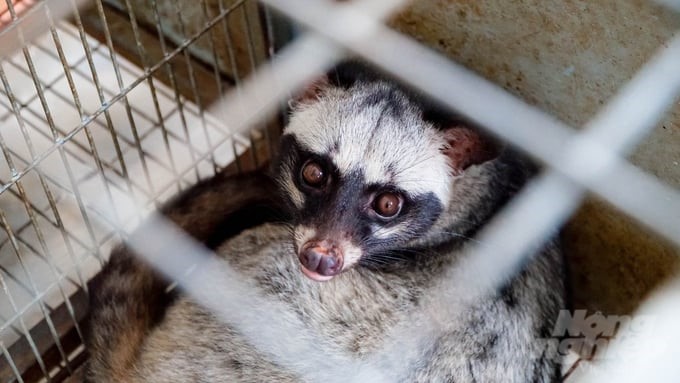
Civet is a wildlife species that is easy to raise, has a high price, and is rarely susceptible to diseases. Photo: Le Binh.
Civet is a wildlife species used as a rare and precious medicinal herb. Not only that, civet is also known as a delicious specialty dish with sweet and tender meat, so it is very favored in restaurants.
To prevent disease issues, Mr. Nguyen Phuoc Quy is gradually transforming to raising civet with biological bedding, which helps decompose waste and minimize odors. He and his wife also take advantage of this bedding to fertilize durian. In addition, tourists who want to visit must be disinfected with a solution and step through the lime pit to minimize cross-infection.
According to the instructed technique, for every square meter of the barn, Mr. Quy uses 1 quintal of rice husk and sawdust (50/50) to make bedding and uses biological products of 100 grams of probiotics, 1.5 kilograms of corn starch, and 10 liters of water to brew well for fermentation.
“Since receiving technical guidance from the STOP Spillover project and the District Veterinary Station, my civet farming facility no longer has wildlife’s characteristic odor. Previously, when there was no bedding, every day I had to wash the cage, which was very tiring. With this biological bedding, we only need to replace another every 3–4 months," Mr. Quy shared.
Because civet is a wildlife species, raising this species is also "issued with birth certificates" and controlled by the ranger force. This is a mandatory requirement. Therefore, for each breed sold to the market or for meat to sell to restaurants, the farm of Ms. Nhung and her husband also provide all valid documents. It is planned that in 2024, Mr. Quy and his wife will increase the number of parent breeds to 100 to meet the increasing demand for farming and consumption.
Mr. Le Tan Viet, Head of the Tan Phu District Animal Husbandry and Veterinary Station, highly appreciated the effectiveness of the civet farming model of Mr. Quy and his wife. Not only does it bring high economic efficiency, but this is also a model that applies disease safety techniques very well.
“Although this is a fairly new farming model in Tan Phu district, it quickly proved its effectiveness. We also closely follow and guide civet farming households in general so that the livestock can grow well and be disease-free. This partly helps the value of civet to be enhanced and more sustainable," said Mr. Viet.
According to the Head of the Tan Phu District Animal Husbandry and Veterinary Station, civet is also a quite fastidious species, so it is also necessary to pay attention to their living habits so that the livestock can grow well. Specifically, during the breeding period, civets like darkness and quietness with noise limitations. In addition, eating issues also need to be paid attention to because they will directly affect the livestock's health.
“Civet is very weak in the digestive tract, so the food source must be clean; the food tray should be individually numbered for each head in each cage and should be cleaned every day. Civet's favorite foods are bananas, coffee, etc. Our farm also feeds civet with carefully cooked fish, chicken, and duck to supplement nutrition and adapt to available raw materials," Mr. Le Tan Viet shared.
Translated by Huyen Vu Thu

(VAN) Use of high-quality broodstock and biotechnology is regarded as the most effective approach to ensuring sustainable and economically viable shrimp aquaculture ahead of climate change and the emergence of increasingly intricate disease patterns.

(VAN) Carbon farming is a form of agricultural practices that helps absorb more greenhouse gases than it emits, through smart management of soil, crops, and livestock.

(VAN) This is a key content of the Memorandum of Understanding recently signed between the Vietnam Fisheries Society and Kunihiro Inc of Japan.

(VAN) To achieve the goal, local authorities and businesses in Kon Tum province have fully prepared the necessary conditions for the new Ngoc Linh ginseng planting season.
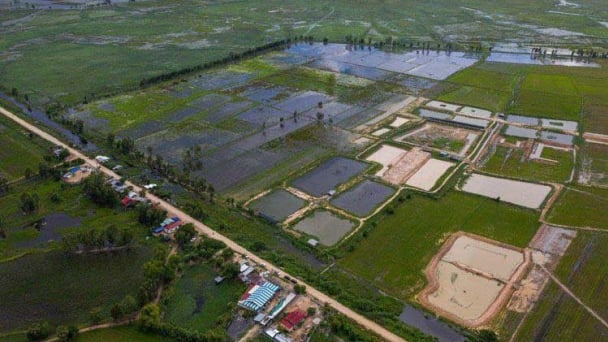
(VAN) Jiangsu province is gearing up to host training programs in Phnom Penh, the capital of Cambodia, this year to establish the Fish and Rice Corridor.
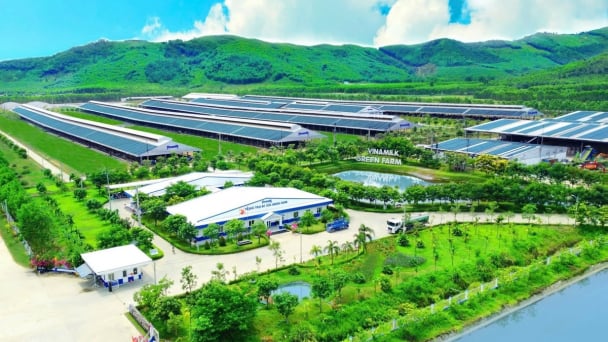
(VAN) Le Hoang Minh, representing Vinamilk, shared the company's experience in energy saving and green energy transition for production at a workshop held during the P4G Summit.
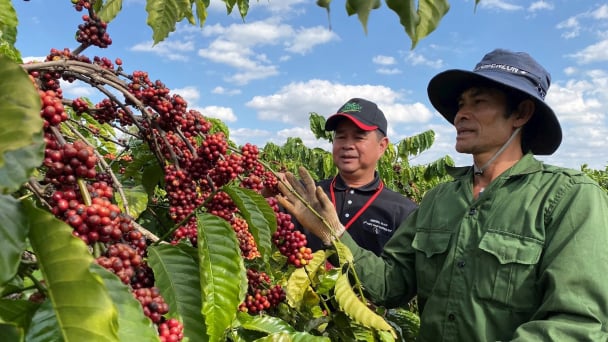
(VAN) Businesses emphasize fairness and equality when integrating social factors into their sustainable development strategies.